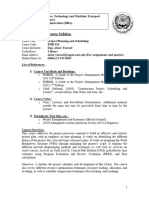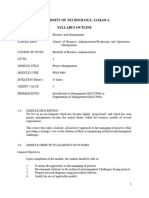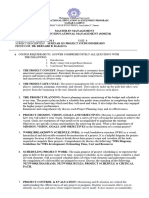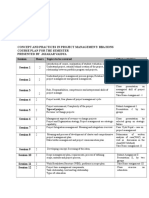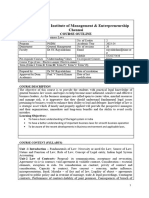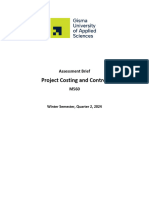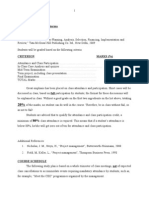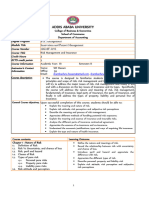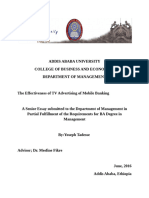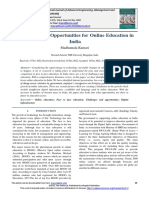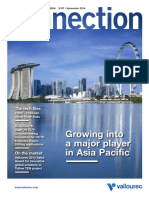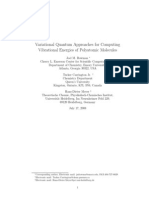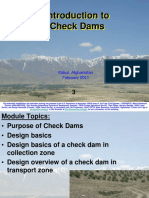0% found this document useful (0 votes)
21 views4 pagesPM Course Outline
The document outlines the course details for 'Project Planning and Management in GIS' as part of the B.Sc. degree in Geographic Information Science, including objectives, content, and assessment methods. Students will learn project analysis, planning, financing, and evaluation techniques over 15 weeks, with a total workload of 135 hours. Attendance, participation, and timely submission of assignments are emphasized as key expectations for students.
Uploaded by
EdenCopyright
© © All Rights Reserved
We take content rights seriously. If you suspect this is your content, claim it here.
Available Formats
Download as PDF, TXT or read online on Scribd
0% found this document useful (0 votes)
21 views4 pagesPM Course Outline
The document outlines the course details for 'Project Planning and Management in GIS' as part of the B.Sc. degree in Geographic Information Science, including objectives, content, and assessment methods. Students will learn project analysis, planning, financing, and evaluation techniques over 15 weeks, with a total workload of 135 hours. Attendance, participation, and timely submission of assignments are emphasized as key expectations for students.
Uploaded by
EdenCopyright
© © All Rights Reserved
We take content rights seriously. If you suspect this is your content, claim it here.
Available Formats
Download as PDF, TXT or read online on Scribd
/ 4


